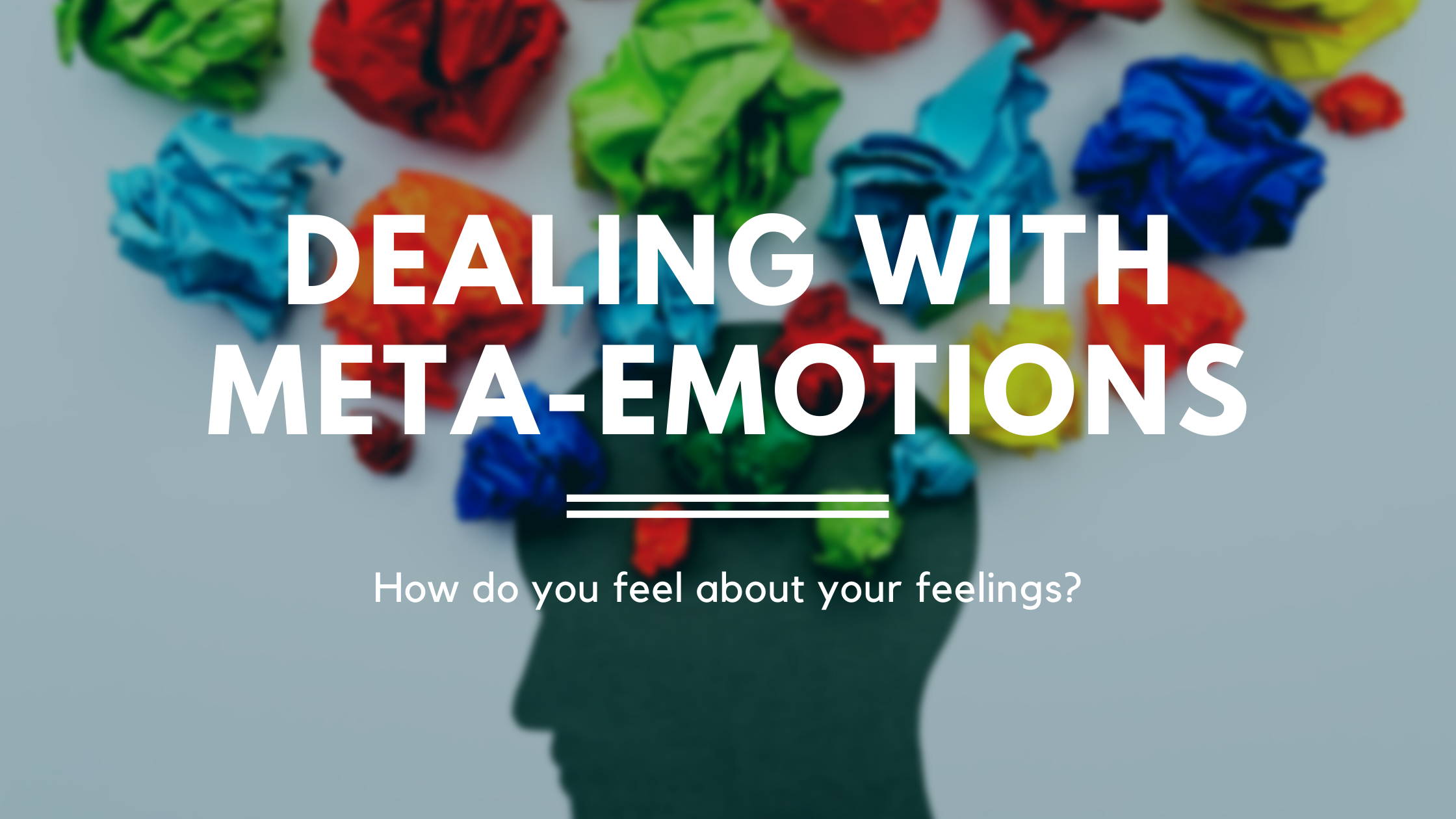Article: Your Meta-Emotions
This October, we’ll explore various ways of incorporating healthy spiritual practices 💕for EMOTIONAL wellbeing. 💕
We are an emotional species. We all have different feelings about our feelings, which are called: meta-emotions. For example, some people might feel guilty for being angry, while for others, anger makes them feel irritated or frustrated. One can feel happy for relief, or perhaps, joyful for being peaceful after a meditation. A meta-emotion is a cognitive-emotional response towards our raw feelings or towards other people's feelings. In other words, meta-emotions are how your feelings make you feel; they are our different perspectives towards feelings and emotions.
Emotions can be overwhelming (which is your meta-emotion response), especially if you grew up in an environment where feelings were discouraged. Some grew up in an emotional home where it was ok to be sad or angry. Unfortunately, others grew up in either emotionless homes or hearing phrases like “boys don’t cry”, “there’s no reason to be sad”, “you shouldn’t be this upset”, “stop being so dramatic”, “You’re too sensitive” and the list goes on.
Feeling however you feel about your feelings today is your right. You get to be in charge of how you express and feel your way through life. Here are suggestions on how to do so:
Embrace. Welcome your feelings by acknowledging and embracing them. This will allow your true self to be known and loved by you. When you notice an emotion, notice your initial response, then pause and choose what you want to do with it.
Be and breathe. Let your emotions hold space by talking about them to others who are worthy of your story and/or journaling about them. Allow yourself to feel them fully in a safe environment. Breathing your way through them will help. If you can breathe with it, you can be with it. Sharing is caring! Empathize and validate yourself.
Question. People who find feelings helpful, feel good sharing their emotions with others. However, some who don’t find them helpful, believe that talking about their feelings will just make them feel worse and it’s hard for them to move on from that feeling. This is where those meta-emotions pop up.
Here are some good questions to ask to help you process: 1.) “Why do I feel like this?” 2.)“Is this the response I want?” 3.) “What’s underlining this feeling?” 4.) “When I experience this emotion, where does my energy go? Does it go into the past? If so, which moment and why is it tagging onto this present moment?”Avoid. It might be best to pause, ignore or avoid feelings at certain times. For example, if a friend shares their pain with you and it triggers you, it can be most appropriate to wait to truly face your emotions about your life so that you don’t make the conversation about yourself. However, it might be best to pause the conversation so you can work through your reaction. After which, you can truly be present to support your friend.
Here are some additional questions you can ask yourself that might help you recognize the meta-emotions of your primary emotions and feelings and deal with them appropriately:
😢I feel sad, how does that make me feel? Am I ashamed of myself for crying? Or do I feel scared or angry about it?
🥺Someone else is sad, how do I feel about it?
😬I feel nervous, how do I feel about that? How is my body responding to this? Are my hands sweaty? Chest pounding? Do I feel scared?
😰He/she/they/em/zir+ is nervous, how do I feel? Do I feel relieved it’s not me in their place? Or is it making me feel uncomfortable because I can picture myself in their situation? After asking the whys, move into the HOW TOs for dealing with it.



